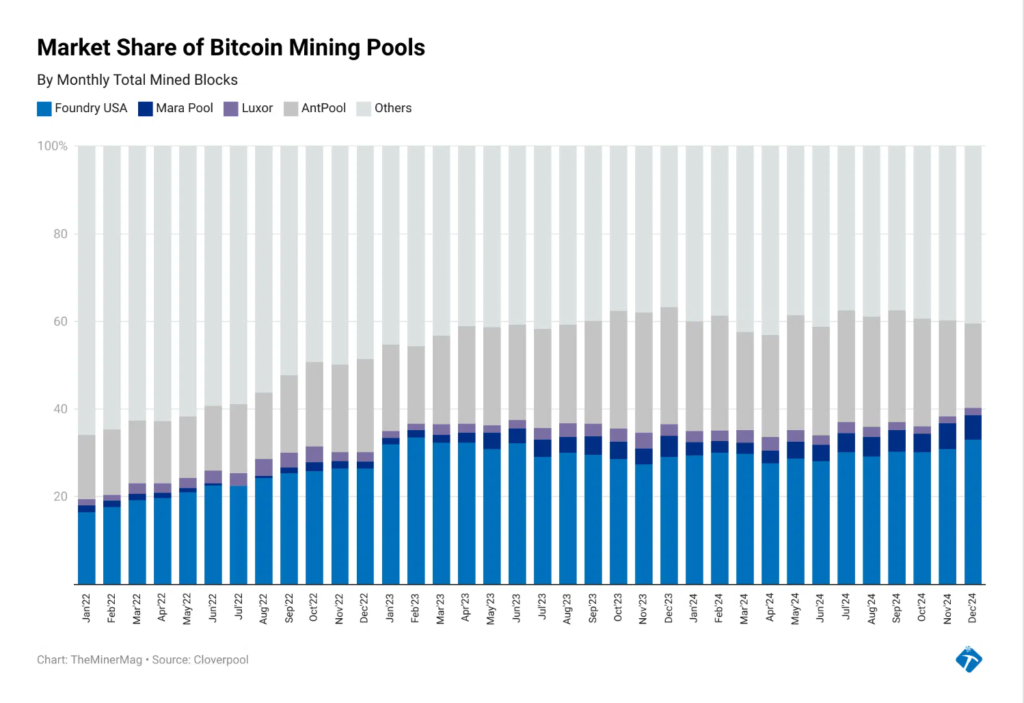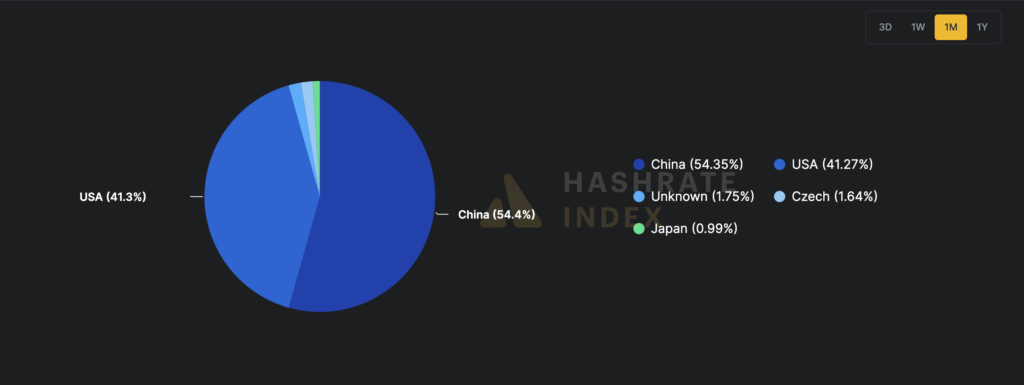US accounts for over 40% of global Bitcoin hashrate
As of late 2024, the United States accounted for more than 40% of the Bitcoin network’s global hashrate — the total computing power that secures the Bitcoin protocol. Notably, two US-based mining pools, Foundry USA and MARA Pool, were responsible for over 38.5% of all mined Bitcoin blocks.
According to TheMinerMag, Foundry USA significantly increased its hashrate from 157 exahashes per second (EH/s) at the start of the year to around 280 EH/s by December, becoming the largest mining pool, with control over approximately 36.5% of the Bitcoin network’s total hashrate.
Meanwhile, MARA Pool is currently operating at about 32 EH/s, making up roughly 4.35% of the network’s total hash power. Despite these gains, Chinese mining pools still hold the majority of the global hashrate.

Debate Over Hasrate Dominance
CryptoQuant’s CEO, Ki Young Ju, pointed out in September that Chinese mining pools were still responsible for 55% of the global hashrate, despite a 2021 ban on cryptocurrency mining in China. Chinese miners have managed to bypass the ban using virtual private networks (VPNs) to hide their locations and connect to mining pools, along with peer-to-peer apps that allow them to circumvent the national firewall and trade cryptocurrencies.
The true dominance of mining pools is difficult to determine due to the international distribution of mining power. Even if a pool’s headquarters is in one country, miners from other locations often contribute to its hash power.

Concerns About Centralization of Hashrate
The growing concentration of hashrate into a few large mining pools has raised concerns about the centralization of Bitcoin mining. Rajiv Khemani, CEO and co-founder of mining chip manufacturer Auradine, highlighted in October that Bitcoin’s decentralization is not only vital for the currency’s integrity but also has national security implications. He warned that critical mining infrastructure, like ASIC chips, should not be confined to a single country to avoid potential supply chain risks, stressing that no nation should dominate the Bitcoin network’s hashrate to preserve the currency’s neutral and decentralized nature.




